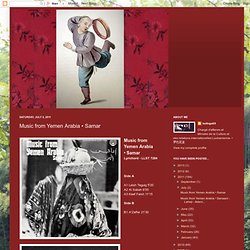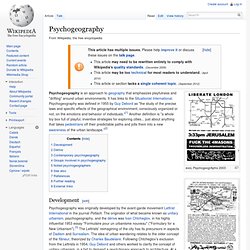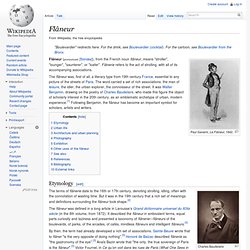

Music from Yemen Arabia. Music from Yemen Arabia • SamarLyrichord - LLST 7284 Side A A1 Leish Teguig 5'20 A2 Al Sabah 6'55 A3 Keef Faish 11'15 Side B B1 A'Zaffer 21'30 Hassan al Zabeede, ud - track A1, A3 Salim Ibrahim, derbooga - track A1, A3 In the evening, Yemeni friends gather to talk, listen to music, smoke tobacco, chew the narcotic leaf quat and drink scented water and ginger spiced coffee.

20 more awesomely untranslatable words from around the world. If only you could use these words in Scrabble.

Photo: Jeremy Mates When linguists refer to “untranslatable” words, the idea is not that a word cannot somehow be explained in another language, but that part of the essence of the word is lost as it crosses from one language to another. This often is due to different social and cultural contexts that have shaped how the word is used. In the novel Shame, Salman Rushdie’s narrator suggests: “To unlock a society, look at its untranslatable words.” Here are 20 words that don’t translate directly into English; what may these words tell us about the societies in which they come from? 1. Arabic – [in-shal-la] While it can be translated literally as “if Allah wills,” the meaning of this phrase differs depending on the speaker’s tone of voice. It can be a genuine sentiment, such as when talking to an old friend and parting with “We’ll meet again, inshallah,” or it can be used as a way to tacitly imply you actually aren’t planning to do something. 2.
20 awesomely untranslatable words from around the world. 10 Untranslatable Words (And When You'll Want to Use Them) English is one of the harder languages to learn, especially if you consider certain key aspects of it.

One is pronunciation and spelling, whereas in languages like Spanish, Italian, Latin, Greek, and German the words are pronounced exactly or almost exactly as to what they are spelled, in English this is not as common of an occurrence, or at least spelling/pronunciation continuity is not as intuitive as it could be. Consider the letter sequence "ough," it is pronounced as "off" in cough, as "uf" in rough and tough, as "uu" in through, as "ahh" in thought, and as "oh" in thorough, however some people will pronounce thorough with an "uh" sound for the "ough" in the word. Another is lacking some of the verb conjugations that other languages have and having a bias against the passive voice. Translating the Untranslatable. Psychogeography. EvoL PsychogeogrAphix 2003 evoL PsychogeogrAphix 2004 evoL PsychogeogrAphix 2005 Psychogeography is an approach to geography that emphasizes playfulness and "drifting" around urban environments.

It has links to the Situationist International. Psychogeography was defined in 1955 by Guy Debord as "the study of the precise laws and specific effects of the geographical environment, consciously organized or not, on the emotions and behavior of individuals Development[edit] Psychogeography was originally developed by the avant-garde movement Lettrist International in the journal Potlach. The Situationists' response was to create designs of new urbanized space, promising better opportunities for experimenting through mundane expression.
However, the Situationist International may have been tongue-in-cheek about some parts of psychogeography. Eventually, Debord and Asger Jorn resigned themselves to the fate of "urban relativity". Quoting Karl Marx, Debord says: Dérive[edit] See also[edit] Sources. Flâneur. Paul Gavarni, Le Flâneur, 1842.

Flâneur (pronounced: [flɑnœʁ]), from the French noun flâneur, means "stroller", "lounger", "saunterer", or "loafer". Flânerie refers to the act of strolling, with all of its accompanying associations. The flâneur was, first of all, a literary type from 19th century France, essential to any picture of the streets of Paris. The word carried a set of rich associations: the man of leisure, the idler, the urban explorer, the connoisseur of the street.
It was Walter Benjamin, drawing on the poetry of Charles Baudelaire, who made this figure the object of scholarly interest in the 20th century, as an emblematic archetype of urban, modern experience.[1] Following Benjamin, the flâneur has become an important symbol for scholars, artists and writers. Etymology[edit] Charles Baudelaire.